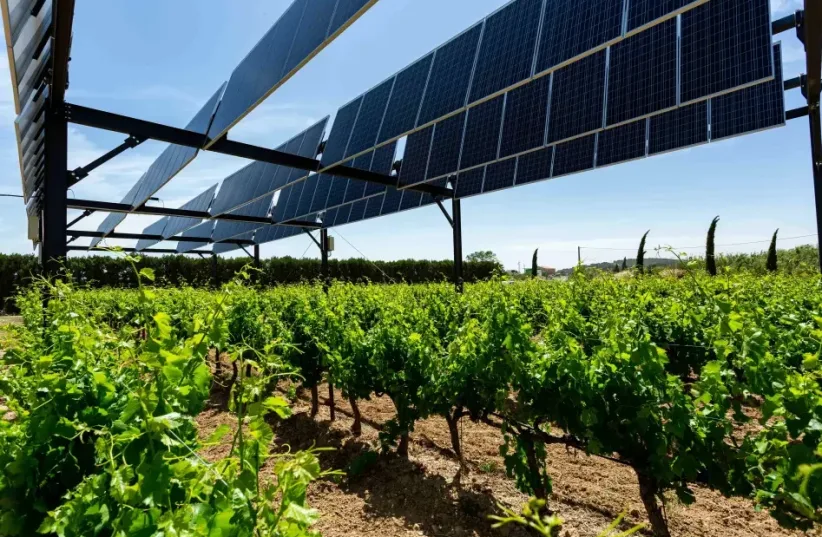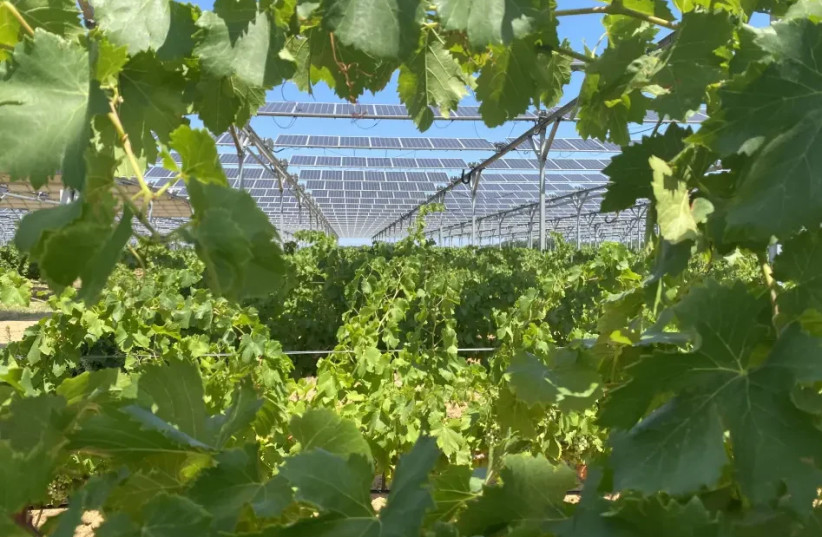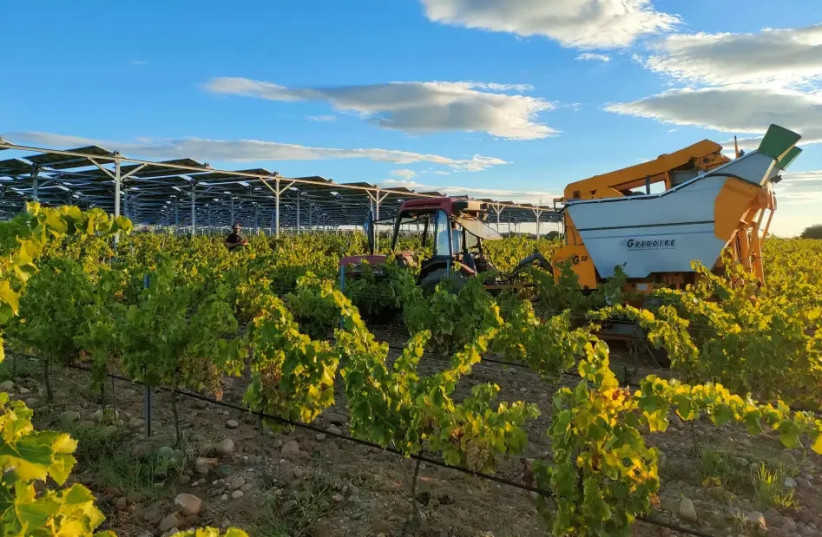The Sun Agri company Sun'Agri Israel, which won in early 2024 a grant of four million euros on behalf of the European Innovation Fund for the establishment of an agro-voltaic field over about 300 dunams, above agricultural crops, will present the results of new studies, conducted in agro-voltaic facilities at the parent company Sun Agri' in France, at the international conference for the agro-voltaic field. The conference, sponsored by the Miguel Research Institute, will take place tomorrow (Wednesday) in the Kimron Hall in Emek HaMaayanot.
Sun'Agri France, a technology company in the field of dynamic agro-voltaic, dual land use - green electricity production and agricultural cultivation together, reveals the results of commercial research that began in 2018 and will continue until the end of 2023, in the three varieties of wine grapes, in the vineyard Domaine de Nidolères in the city of Tressere, in the south France, on an area of 40 dunams, where about 17,300 wine vines are planted.
The agro-voltaic installation, which stands four meters high and has a power of 3.5 megawatts, was adapted above the vineyard, using a microclimatic control system to overcome the threats of the climate, including a sharp increase in temperature. In the south of France, the temperature can reach 40 degrees in the summer, which causes crop loss and premature ripening of the wine grapes. In extreme cases, the increase in temperature may stop the photosynthesis process and thus prevent the development of the color and aroma compounds in the fruit.
The research findings show an increase in the yield of wine grape varieties: 45% increase for Grenache Blanc, when the vines yielded 990 kg per acre, compared to 680 kg in the control group, 25% for the Marslan variety, when 600 kg per acre , compared to 480 kg in the control group, and 10% in the chardonnay variety - 435 kg, compared to 390 kg in the control group. The company claims that in addition to this, there has been an improvement in the quality of the fruit and the quality of the wine produced from these varieties.
The company explained that according to the results of the research, during the heat loads, there was a drop of four degrees Celsius under the panels, and the temperature on the surface of the vine was reduced by 22.8 degrees Celsius, which is essential for the balance between the acids and sugars. In addition, there was a saving in irrigation of about 35%, which results from the reduction of water evaporation from the soil and the plant, due to the shading caused by the panels.
Cecile Magherini, CEO of Sun'Agri France, said: "We are satisfied with the results of the latest research, which confirm the advantages of the agro-voltaic field in growing wine grapes. Our technology makes it possible to optimize agricultural production and improve the quality of the grapes."
Bar Weiss, CEO of Sun Agri Israel, also said that "Our experience is based on 15 years of research and 24 connected projects, on a variety of crops, especially those under climatic pressure. The Israeli climate is more extreme than the French climate, therefore we are sure that the successes in France will be significantly reflected in Israel."


